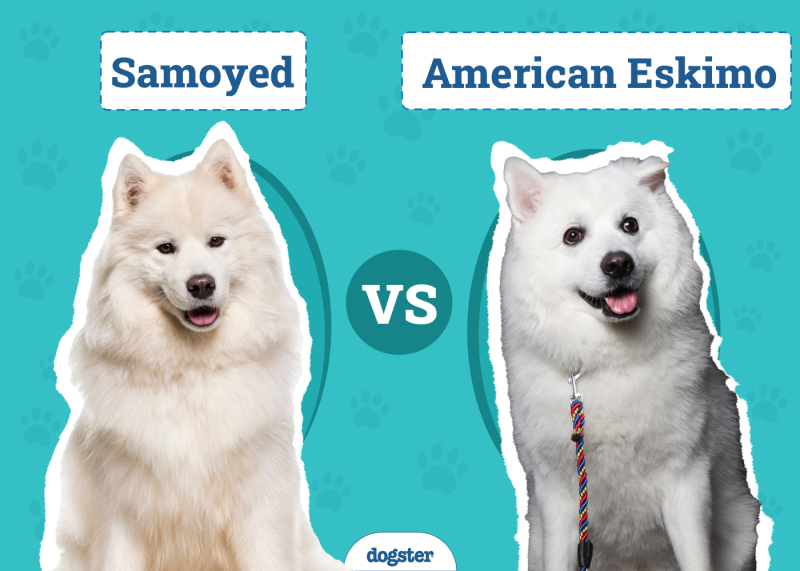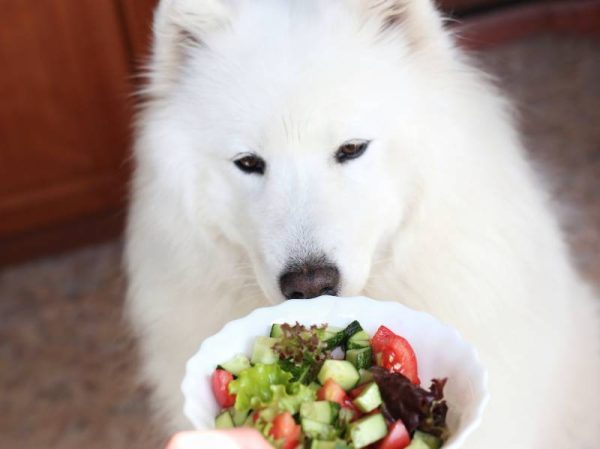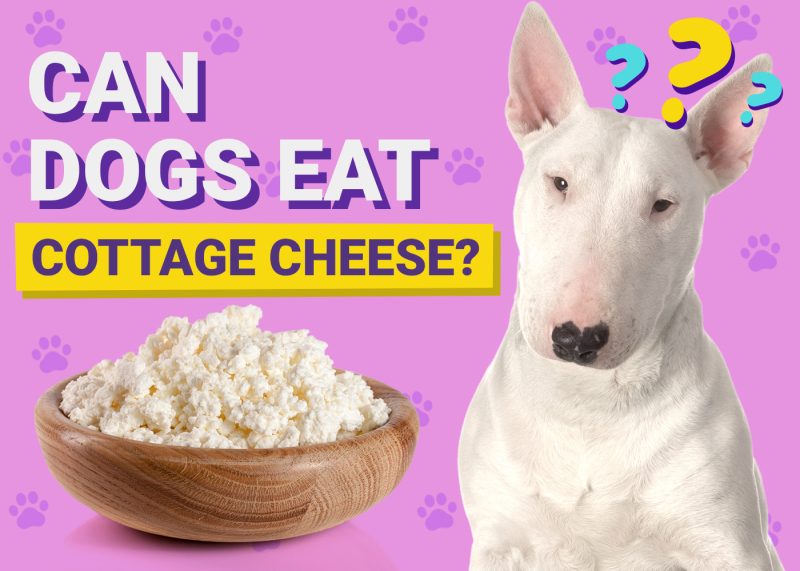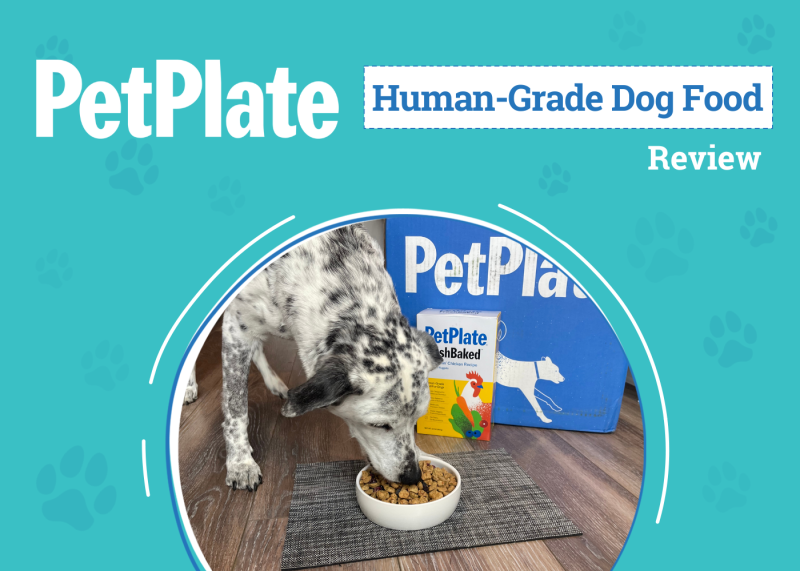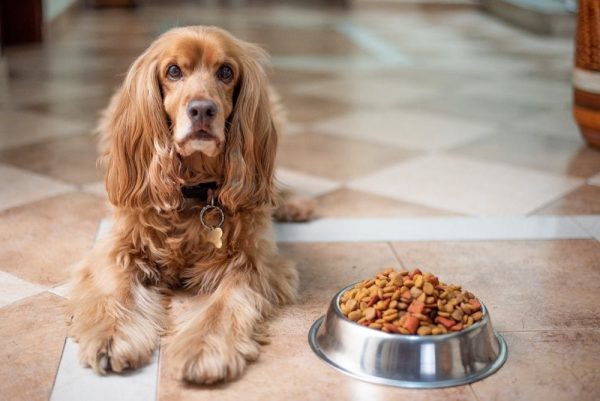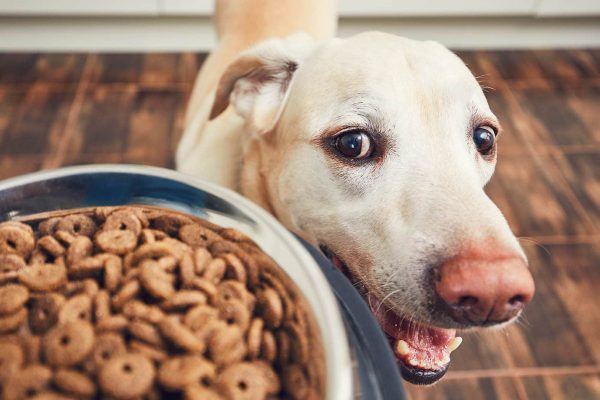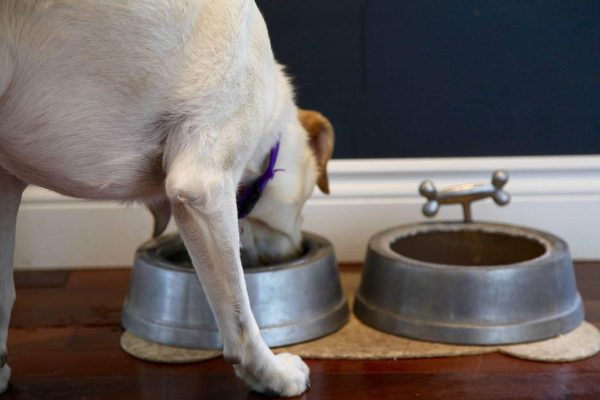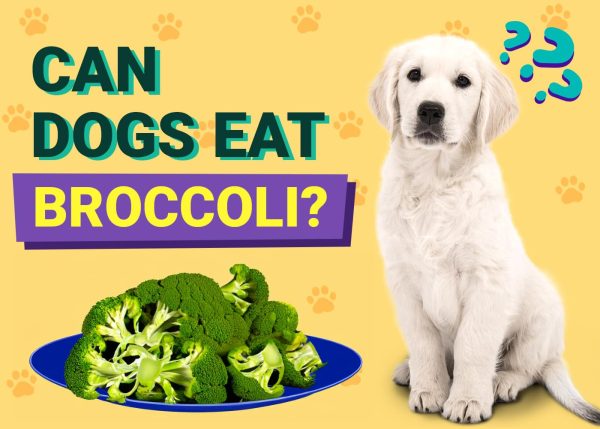In this article
When it comes to dog nutrition, carbohydrates are a tricky subject. While canines can get energy from protein and fat, many dog food brands contain one or multiple sources of carbs. On the opposite end, there are dog food recipes that are grain-free and low-carb. So, what’s the deal with carbs, and are they good for dogs?
Fortunately, carbohydrates can be a healthy source of energy for dogs,1 and they can also provide additional health benefits, depending on the source. There are plenty of safe carb sources for canines, from whole grains to fruit.
So, what are the best carbs for dogs? Let’s take a look at a few sources of carbohydrates that are safe and healthy for dogs to eat.

Calorie Calculator for Dogs
The exact amount of calories an individual animal needs to maintain a healthy weight is variable and influenced by many factors including genetics, age, breed, and activity level. This tool is meant to be used only as a guideline for healthy individuals and does not substitute veterinary advice

The Top 6 Sources of Carbs for Dogs
1. Whole Oats
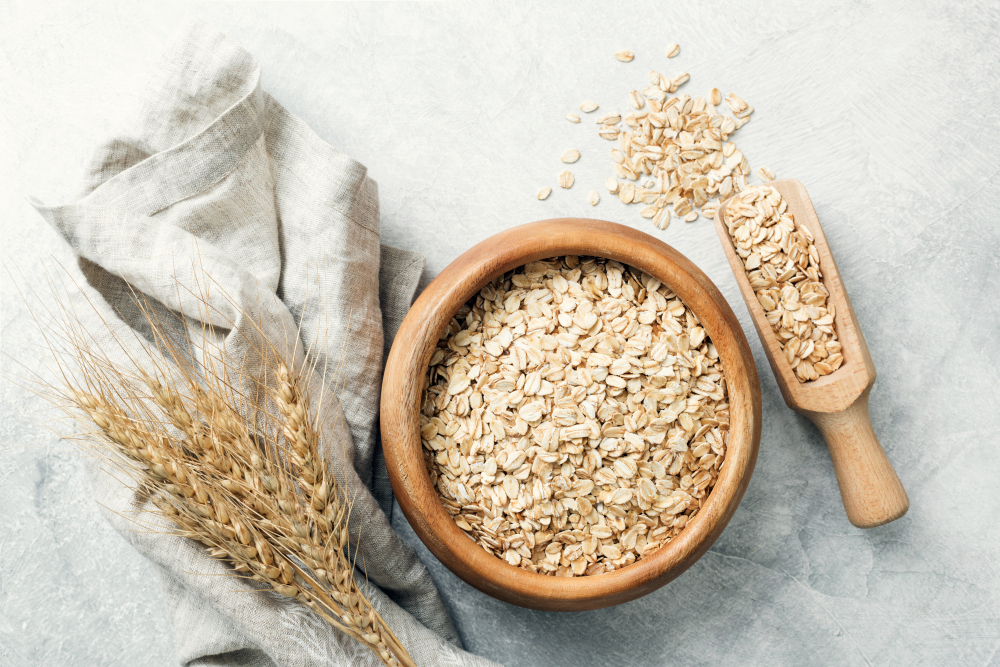
- 140 calories
- Fiber: 4g
- Protein: 5g
- Fat: 2.5g
- Carbohydrates: 28g
- Sugar: 1g
Serving Size for Dogs: Approx. 1 tablespoon per 20 pounds of weight. Do not exceed 4 tablespoons.
- Note: Whole oats are high in calories and can cause weight gain if fed too often.
In general, oats, whether old-fashioned or rolled, are naturally rich in carbohydrates and fiber. They’re among the healthiest sources of carbs for dogs, especially for homemade dog food and treats. If you’re planning on switching your dog to homemade cooking, consider adding oats as a main source of carbohydrates. Not only are they cheap and available virtually anywhere, but they’re also great for dogs that need a little extra fiber.
2. Rice
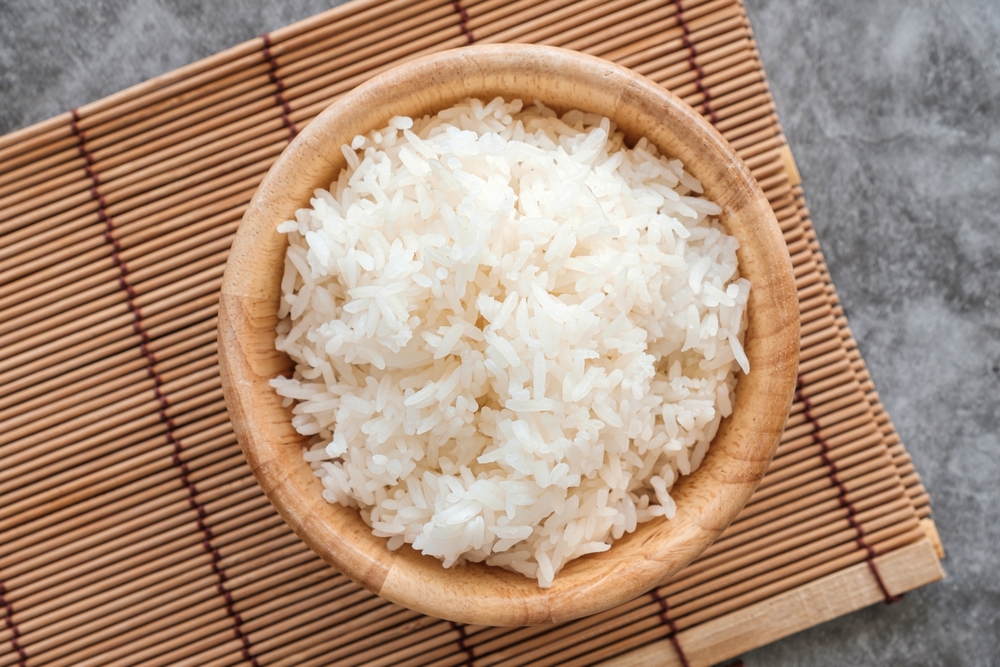
- 108 calories
- Fiber: 2g
- Protein: 3g
- Fat: 1g
- Carbohydrates: 22g
- Sugar: 0g
Serving Size for Dogs: No more than 10% of your dog’s total diet, especially for small dogs and dogs with diabetes and digestive issues. While white rice is recommended for a bland diet for a dog, brown rice should not be given to dogs with diarrhea or other gastrointestinal issues because it is not processed and is harder to digest. Adding rice to a diet already rich in carbs will cause an imbalance, so it’s crucial to talk to a vet before adding rice.
- Note: Rice is a high-glycemic and high-caloric source of carbs and can cause issues in dogs with diabetic and thyroid conditions. Never feed your dog any type of rice that has been cooked in oils, butter, or spices, as they can be potentially toxic.
Although rice is a bit high on the glycemic index, it’s still one of the better carbohydrate options. White rice may be easier for your dog to digest, but brown rice is a little more nutritious. Rice is a great source of carbs and protein, especially for dogs that are active and require a lot of fuel. Make sure any rice products do not contain oils, spices, or butter that can be potentially toxic or harmful to your dog.
3. Barley
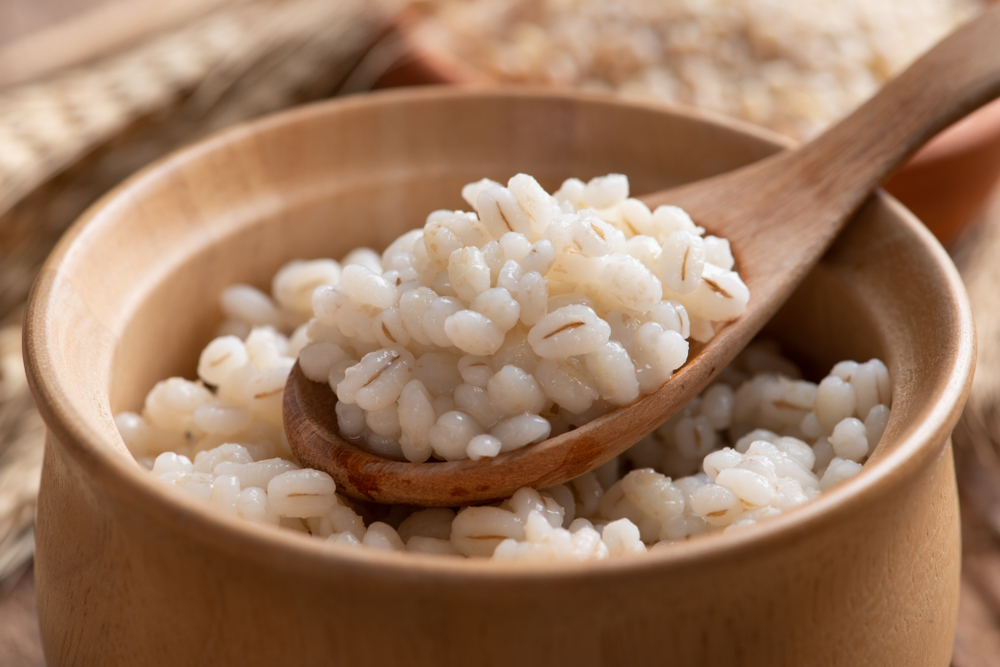
- 99 calories
- Fiber: 3.1g
- Protein: 1.82g
- Fat: 0.3g
- Carbohydrates: 22.75g
- Sugar: 0g
Serving Size for Dogs: No more than 10% of your dog’s weekly meals. Barley is high in fiber and can cause digestive issues if fed too much at once. Consult with a vet if your dog has stomach problems before feeding them barley.
Barley is sometimes forgotten as a dog-safe carbohydrate, even though it’s in dozens of commercial dog food recipes. It’s a whole grain that contains multiple nutrients essential for a balanced diet, such as potassium, iron, and vitamin B6. Although this grain contains gluten, most dogs do perfectly fine with these types of grains. However, be sure to contact a vet to ensure your dog doesn’t have a grain intolerance.
4. Sweet Potatoes
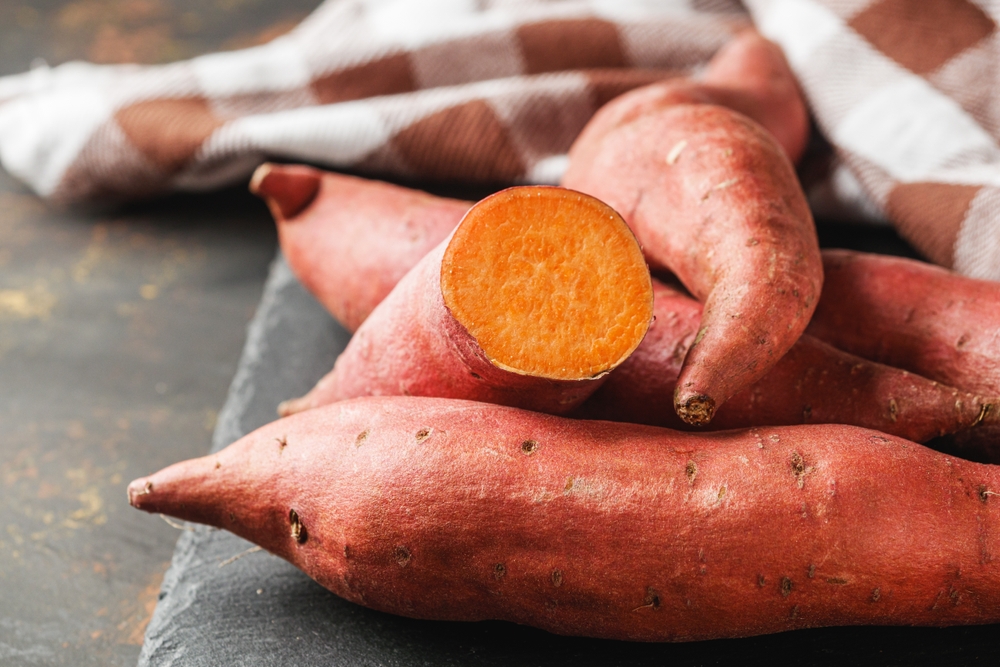
- 114 calories
- Fiber: 4g
- Protein: 2.1g
- Fat: 0.1g
- Carbohydrates: 27g
- Sugar: 6g
Serving Size for Dogs: No more than 15% of your dog’s weekly food intake. Serve as a treat or occasional snack. Consult with a vet first before feeding them sweet potatoes, especially breeds prone to heart problems, food allergies, or diabetes.
Sweet potatoes are a starchy source of carbs that most dogs can eat, which is evident in the dozens of commercial dog food recipes that contain sweet potatoes. They are a dietary source of vitamin A, vitamin C, vitamin B6, potassium, and calcium, so they are nutritious for your dog’s nervous system, eyes, skin, muscles, and bones. In addition, they contain beta carotenes that have antioxidant effects, aiding your dog’s immunity. However, talk with a vet before feeding sweet potatoes to your dog, as excess vitamin A can cause bone and muscle issues.
Although gluten-free, sweet potatoes are high in carbs, so they are best as a treat instead of the main staple in your dog’s diet; this point is especially important in diabetic dogs.
5. Banana

- 110 calories
- Fiber: 3g
- Protein: 1g
- Fat: 0g
- Carbohydrates: 28g
- Sugar: 15g
Serving Size for Dogs: Small dogs — One or two 1/2-inch pieces a day. Medium dogs — Up to ¼ of one medium banana a day. Large dogs — Up to half of one medium banana a day.
Many dogs love the flavor of bananas, which are rich in carbohydrates and potassium. They’re a great source of carbohydrates but best fed to your dog as treats instead of the main part of their meals. Bananas are naturally high in sugar and high in the glycemic index, so dogs with diabetes and thyroid conditions should avoid bananas. Before feeding your dog a piece of banana, double-check with a vet to make sure it will work with your dog’s current diet.
- See Also: Can Dogs Eat Banana Bread?
6. Millet
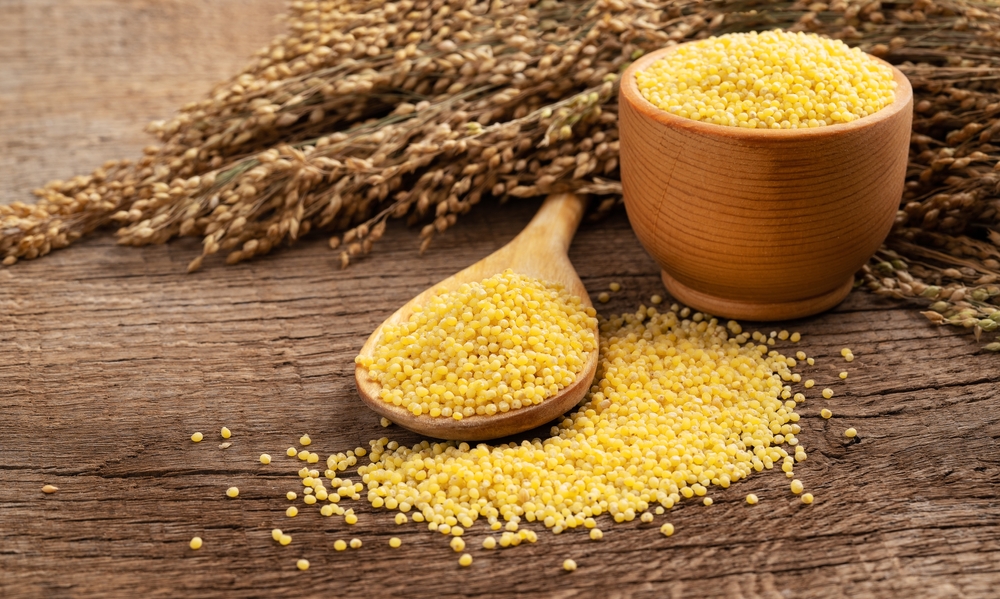
- 103 calories
- Fiber: 1.1g
- Protein: 3g
- Fat: 0.85g
- Carbohydrates: 20g
Serving Size for Dogs: Approx. 1 tablespoons per 20 pounds of weight. Do not exceed 4 tablespoons.
- Note: Millet is high in calories and can cause weight gain if it’s fed too often.
Millet is a cereal type of grain that shows up in both human and dog foods, usually in cereals, kibble, and dog treats. Not only is it rich in healthy carbohydrates, but it’s also an excellent source of dietary fiber. Millet is not as popular as some other grains in homemade dog food, but that doesn’t mean you should count it out. It’s also lower on the glycemic index than other sources of carbs without containing any gluten. Millet is a good choice for dogs that can’t have potatoes or rice, especially dogs with conditions affected by high-glycemic foods.

Why Are Carbohydrates Important for Dogs?
When it comes to dog nutrition, carbohydrates are not as essential to a balanced diet as other nutrients. While some dogs may thrive with an outside source of energy in their diets, they can usually get enough energy from breaking down fat and protein. There are several reasons that you may not need to feed your dog carbs, especially if their diet already contains them.
Although they can provide energy for your dog, most sources of carbs have additional nutrients like fiber or vitamins. On the flip side, some types of carbs are high-glycemic foods that can cause blood sugar spikes. Working and high-energy dogs may need an extra source of energy to be healthy, while less energetic dogs may need a lean, low-carb diet.
Dog diets vary in nutrition levels and diet types, so you must provide for your dog’s specific needs. While giving your dog a few carb-heavy treats may not cause issues, adding them daily can throw off a balanced diet. If you think your dog’s diet is off-balanced or lacking in sources of energy, contact a veterinarian to discuss carbohydrate options that will work best for your dog.
If you need to speak with a vet but can't get to one, head over to PangoVet. It's our online service where you can talk to a vet online and get the personalized advice you need for your pet — all at an affordable price!
How Many Carbs Does My Dog Need?
How carb-heavy your dog’s diet can be is a loaded question, one that is almost impossible to answer without knowing what is in your dog’s current food. This is a question best asked of a veterinarian, especially if you have a dog with food sensitivities and food-triggered health conditions. Certain types of carbs can have additional properties that may cause health problems to worsen, so it’s crucial to ask a vet before serving them.
A dog’s diet may have anywhere from 20% to nearly 60% or more carbohydrates. Some commercial dog food has more or less than this amount, depending on the quality of ingredients and type of recipe. Working and high-energy dogs may need more carbs than other dogs, but that’s not always the case. Again, it’s best to consult with a vet for your dog’s specific dietary requirements before changing anything.
Grains vs. Fruits vs. Vegetables as Carb Sources
Carbs are in a wide variety of foods, like whole grains, fruits, and vegetables. They also come in two forms: complex and simple carbs. Whole grains like oats and millet contain complex carbs, which take longer to break down. Sugar and foods like fruit contain simple carbs, which break down much faster. Both simple and complex carbs have their place in a balanced diet, but simple carbs like sugary fruits can cause flare-ups in conditions like diabetes and thyroid disease. Fruits like bananas are a nutritious form of simple carbs, but they’re high in sugar and should be limited as treats or snacks once a week.
Starches and whole grains are complex carb sources, which take longer for your dog’s body to use and absorb. While they may not cause as many issues as sugary fruits and simple carbs, starches and whole grains can throw off a diet that doesn’t need them. Adding starches and whole grains as treats is generally safe to do, but we recommend asking a vet to help create a diet plan for your dog.

In Conclusion
Carbohydrates can be a great way to give your dog’s diet an energy boost. They’re generally safe for canines to eat, especially sources that contain dietary fiber. While they often have a negative reputation, many dogs thrive on a diet with carbohydrates. Whether you’re looking to supplement your dog’s food or make dog food at home, there are many healthy and natural carbs that you can give to your dog.
Always consult with a veterinarian before changing your dog’s diet, especially if they have allergies or health conditions triggered by food.
See also:
Featured Image Credit: Dmitriev Mikhail, Shutterstock



